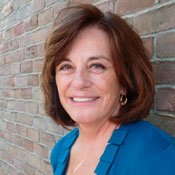Mississippi House of Representatives hopeful Gay Polk is determined. Polk lost the Aug. 2 Democratic primary to her opponent Brad Oberhousen by just 90 votes. But after reports surfaced that her name was not on the ballot at Terry's Dry Grove precinct, she spent the next week camped out at the Hinds County Courthouse as she monitored a chaotic and confusing election certification process. She then challenged the Hinds County Democratic Executive Committee's decision to certify Oberhousen as the winner in the District 73 race, arguing that voters had received the wrong ballots at the split precinct.
When the Democratic Executive Committee denied her challenge, she took the matter to court. On Oct. 3, Leake County Circuit Judge Vernon Cotton ruled in Polk's favor, granting a revote in the Dry Grove precinct on Tuesday, Oct. 18.
The candidate said her election fight is symbolic of how hard she is willing to work for voters. "If I see a wrong, and if there is something I can do to make it a right, I'm going to do all that is in my ability to make it a right," Polk said.
Polk, 61, has lived in Terry for 25 years and worked as an administrator and nurse at her husband Dr. James D. Polk's primary family-care clinic in Richland. Four years ago, the couple sold the clinic, and Gay Polk started a second career as a real estate agent.
What did you learn from the Hinds County election process?
Voting should not be a difficult process. Counting the votes should not be difficult. It was the absolute most chaotic experience I have ever experienced--that week at the courthouse. I sat and watched and went in every day. A lot of it was the process--the discrepancies that happened at the split precincts where they had two or three sub-districts in one location. That's what causes so much turmoil. ... It's very confusing for the voters as well as the poll workers, and it shouldn't be. That's through redistricting and the legislative process that we can get that changed. I hope I have the opportunity to work to get that changed.
What will be your priorities if voters elect you?
I am a great cheerleader for Hinds County. I love Hinds County. I would love to represent the citizens of south Hinds County. ... We have 40,000 students that come to Hinds County every year for higher education. We have a huge medical community in Hinds County, and all of our state government is here as well as the federal government. We need crime control, drug control. I am not sure, legislative wise, what we can do to allocate money to go to the proper places to help us with the county. Something needs to be done, because we have so many people from the tri-county area that come here to work. Another thing is education. There was a bill last year for a diploma program from high school to vocational training. Not everyone is college material. But you want to give everyone the opportunity to advance to higher education. It would help all students to learn a trade.
I understand that if a ballot initiative requiring voters to show identification passes, it will be up to the Legislature to fund that initiative. What are your thoughts on that?
Well, my mother was adopted. She had never driven a vehicle in her life. She did not have an ID until she was in her 70s. My brother is an attorney, and it took lots of paperwork and letters to the Social Security Administration. My mother was adopted from the streets of New Orleans when she was 6. There was no public record of adoption. There has to be exceptions with voter ID.
At one point, you said your family depended on social services, and that's one of the reasons you became a Democrat. Tell me more about that.
Most people, at some point in their life, need a little push. When we were growing up, a lot of help came through the church--Calvary Baptist Church on West Capitol Street. We had a lot of community involvement at that point. I went to school on a Pell Grant. ... My brother went to college on the G.I. Bill after he served in Vietnam for a year. I went to a vo-tech program in 1977, when I was a single mother, to become an LPN. Before I was financially able to take care of others and myself, there were times I was working two or three jobs and still needed help.
How can the state maintain social services in tight budget years?
You are going to pay bills that keep the government running and state employees working. You are going to pay your bills before you build museums and allocate money to help other things. Then you have to work out what you spend on other things. ... But you have a right and a wrong, and you can't let special-interest groups influence you on what is the right thing to do, and that's what has happened.


